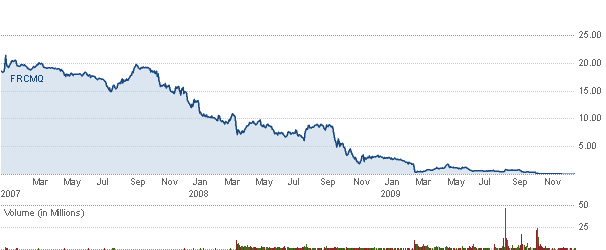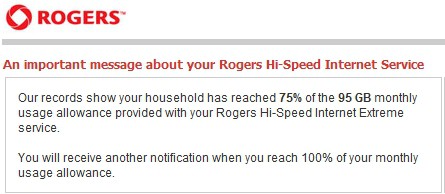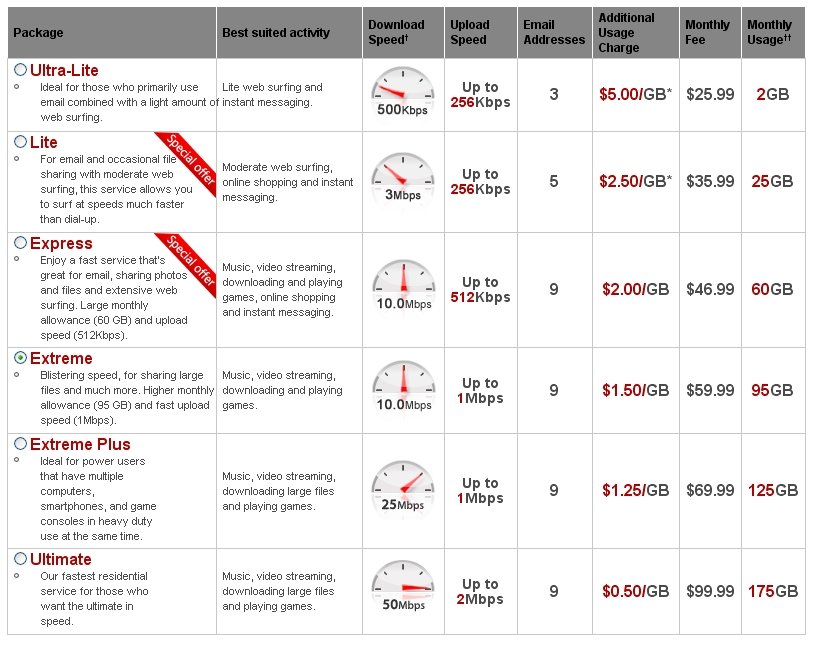Verizon Wireless’s next generation LTE wireless broadband network threatens to bring expensive “usage-based billing” to millions of Americans using technology products that depend on wireless networking to communicate — from the handheld tablet you use to enjoy USA Today over morning coffee, the car that delivers news, weather and traffic reports to and from work, to the portable television you use to catch up with the game while running around town.
At the Consumer Electronics Show, Verizon chief technology officer Dick Lynch warned that Verizon is likely to abandon any notion of flat rate usage pricing, particularly when Verizon doesn’t get a piece of the action from the sale of the devices that connect to their network.
Instead, Verizon Wireless will adopt a wireless version of Internet Overcharging — usage-based billing that isn’t entirely “usage-based.”
A true consumption billing system charges consumers only for what they use — don’t use the service that month and customers would pay little or nothing for service that billing period. Instead, providers maximize revenue with arbitrary “usage allowances” which are part of the steep monthly service fee. The unused portion of the allowance typically does not roll over, in effect lost at the end of the month. That means you pay for not using their network. Imagine if your electric company charged you for leaving the lights on 24/7, but you were out of town that month. If you exceed your allowance, the overlimit penalty kicks in, and most providers set those prices high enough to sting you while rewarding them.
“The problem we have today with flat-based usage is that you are trying to encourage customers to be efficient in use and applications but you are getting some people who are bandwidth hogs using gigabytes a month and they are paying something like megabytes a month,” Lynch said. “That isn’t long-term sustainable. Why should customers using an average amount of bandwidth be subsidizing bandwidth hogs?”
The first step to broadband pricing enlightenment is to recognize the only true “hog” here is the broadband provider with an endless appetite for your money. Usage-based pricing schemes carry the one-two punch for consumers, with no pain for providers:
- They discourage usage, as consumers fear using up their monthly allowance and getting socked with an enormous bill filled with penalties and overlimit fees;
- The corresponding reduction in usage lowers the providers’ capital spending requirements to meet consumer demand, and increase profits dramatically from those who find allowances too limiting and are willing to pay the exorbitant pricing providers charge those who exceed them.
Does Verizon actually believe that $60 a month for their wireless broadband service represents a fair price for someone using “something like megabytes a month?” Can Verizon show it is losing money on its wireless broadband service? I think not.
Predictably, Lynch provides a “between-the-lines” slap at government intervention to force open wireless networks to additional competition in the equipment marketplace:
“The whole paradigm of how we sell devices into the public is changing,” Lynch said. “At the same time that we announced LTE, we announced an open development initiative where we encouraged third-party developers to deploy devices on our network.”
That initiative was hardly the result of a sudden change of heart from Verizon. It came from pressure Washington applied over the “closed network” practices the American wireless industry has followed for years. Handsets and the applications that run on them have traditionally been closely controlled by providers. Features built into smartphones and other handsets were disabled or limited by providers before the phones were sold to the public. Usually, this forced customers to use the services either provided directly by their wireless company, or one of their “affiliated partners.”
Verizon Wireless is signaling the consequence of a more competitive, open market for wireless products and services: usage limits and a higher bill. That’s because you didn’t buy that device at a Verizon store at their asking price, and you’ve been using it too much.
 Consumers would make a grave mistake in blaming a more activist watchdog role by the federal government to force open the wireless industry to competition and innovation by third parties. Despite Verizon’s hints that those pesky regulators in Washington are to blame for your usage being limited and your bill being higher, the blame really belongs with the carriers pocketing those proceeds.
Consumers would make a grave mistake in blaming a more activist watchdog role by the federal government to force open the wireless industry to competition and innovation by third parties. Despite Verizon’s hints that those pesky regulators in Washington are to blame for your usage being limited and your bill being higher, the blame really belongs with the carriers pocketing those proceeds.
Since regulators will get the blame regardless, isn’t it time to go all out for American consumers by transforming the wireless provider marketplace? Here are our suggestions:
- An end to the ongoing consolidation of existing wireless players into a shrinking number of what will soon be two or three “too big to fail” national providers;
- Insistence on additional competition coming from new, independent players, not simply those directly affiliated with the dominant four carriers (Verizon, AT&T, Sprint, and T-Mobile);
- Justification for confiscatory data pricing made possible from the highly concentrated wireless marketplace, particularly in smaller cities and communities.
Verizon and AT&T have both engaged in a lot of scare talk about usage and their costs to manage it. We’d believe them, except we read their financial reports and neither company is hurting. We’d even be willing to meet them halfway and advocate additional allocations of spectrum to provide the bandwidth an increasingly wireless world will demand, but not at their asking price with those pesky terms and conditions that ration service to consumers at top dollar prices.


 Subscribe
Subscribe











